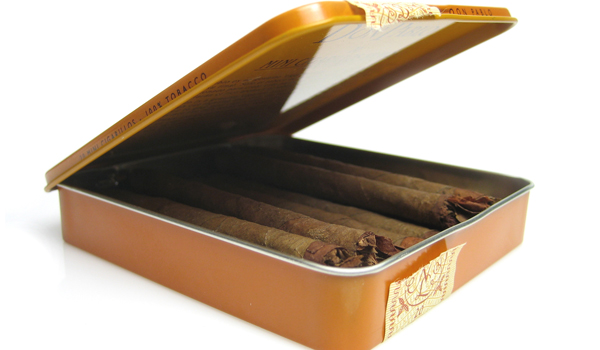
Why Are Cuban Cigars Illegal?
The ban dates to 1962, and was a response to some of former communist dictator Fidel Castro's policies.

Cuban cigars have long had a reputation as being the best, but if American cigar connoisseurs want to enjoy them, they have to leave the country -- or procure them illegally. That's because Cuban cigars are currently banned in the United States.
The ban was initially created in response to the rise of Cuba's communist dictator Fidel Castro and progressively worsening relations with the United States. Castro had overthrown the anticommunist government in 1959 and later nationalized U.S.-owned oil refineries. In 1961, the U.S. covertly sent 1,400 CIA-sponsored Cuban exiles to overthrow Castro's regime, in what would become known as the Bay of Pigs Invasion, according to the Council on Foreign Relations. The effort failed in three days, and relations between the two countries became even chillier.
Finally, Feb. 7, 1962, President John F. Kennedy established a strict trade embargo on all imports and most exports from Cuba in order to take a stand against and weaken Castro's communist regime. The ban includes all Cuban products; cigars just happened to be one of the country's more famous exports.
The rules surrounding Cuban cigars were briefly loosened during the Obama administration, when it became legal to bring back up to 100 cigars for personal consumption. But on Sept. 24, 2020, President Donald Trump reinstated the ban, according to Customs and Border Protection.
When Trump reinstated the Cuban cigar ban, it also became illegal for U.S. travelers who bought the cigars in Canada, Mexico or the United Kingdom to bring Cuban-origin tobacco products into the U.S. The same ban applies to Cuban cigars that were given to you as a present during your trip. Now, however, CBP permits travelers to purchase the cigars in other countries and bring them back into the U.S. The cost of getting caught trying to smuggle a Cuban cigar through U.S. customs makes the cigars less desirable you can be fined up to $55,000.
Because the U.S. was one of the primary importers of Cuban products prior to the trade embargo, the ban on trade has cost the country approximately $130 billion over six decades, Reuters reported. How much of that lost income came from the selling of Cuban cigars isn't clear, however.
Sign up for the Live Science daily newsletter now
Get the world’s most fascinating discoveries delivered straight to your inbox.










